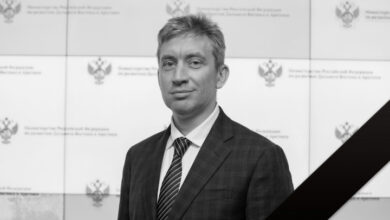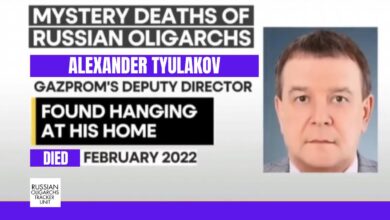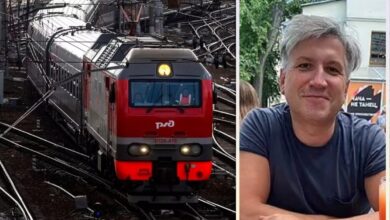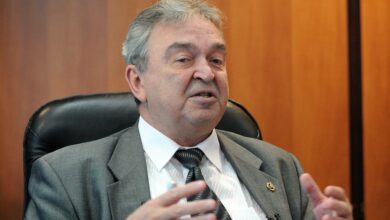Russian Plane Crash : Wagner Prigozhin Among Passengers Killed in Tragedy
Valery Chekalov, born on January 10, 1976, and who passed away on August 23, 2023, in a Russian Plane Crash shock, held multiple roles within the Wagner private military company. He was a prominent Russian mercenary leader and served as the head of logistics. Additionally, he maintained a close and trusted relationship with the leader of Wagner, Prigozhin.
Who was Valery Chekalov ?
Valery Chekalov, born in 1976 in the Russian SFSR, initially served in the Russian Navy before later becoming affiliated with the Wagner Group, a private military company. He developed a close relationship with Wagner Prigozhin, overseeing a number of front companies associated with Wagner Prigozhin. These companies were responsible for managing mercenaries, procuring weapons, and handling Wagner’s business interests in regions such as Syria and Africa.
Tragically, in August 2023, Valery Chekalov, along with Wagner Prigozhin and Wagner co-founder Dmitry Utkin, lost their lives in a Russian Plane crash in Tver Oblast. There were suspicions that the Russian government, under the leadership of Vladimir Putin, might have been involved in sabotaging the plane, with the aim of eliminating the leadership of Wagner in one decisive move and compelling Wagner to become integrated into the Russian Army.
Personal Life
While he was originally from Vladivostok, he had been residing in St. Petersburg, Russia, since 2008. He was married and had prior experience serving in the Russian Navy.
Career
Chekalov held a senior deputy position under the leadership of Wagner Prigozhin within the Wagner Group, where he was known for his expertise in logistics and went by the call sign “Rover.” One of his responsibilities reportedly involved organising travel arrangements for Prigozhin. Additionally, Chekalov had a longstanding role as a high-ranking employee within Concord Management and Consulting, which served as the holding company for Prigozhin’s extensive business interests. Furthermore, he was the owner of Kollektiv Servis, based in St. Petersburg, which had connections and shared an address with Concord.
Between at least 2020 and 2022, Chekalov served as the director and had control over Neva JSC, a company closely associated with the Wagner Group’s operations in Libya and Syria. Neva also owned Evro Polis, located in Krasnogorsk, which supplied armoured trucks designed for anti-mine purposes to Wagner forces in Libya. Moreover, in December 2016, they signed an agreement to collaborate with the Syrian Arab Army, aiming to secure a 25% share of oil and gas production from liberated fields in Syria.
On January 26, 2018, the United States imposed sanctions on Evro Polis, designating it as an entity either owned or controlled by Prigozhin, citing its involvement in Syria. Similarly, on December 13, 2021, the European Union sanctioned Evro Polis for its role as a front organisation for the Wagner Group in Syria.
What information do we have regarding Prigozhin’s most recent activities?
What is known about Prigozhin’s recent movements is that his private jet was reportedly travelling from Moscow to St. Petersburg and crashed about 60 miles north of Moscow. After his brief rebellion against Russia’s top military leaders, during which he had criticised their Ukraine strategy, Prigozhin had maintained a relatively low profile. As part of a deal to end the rebellion, charges against him were dropped under the condition that he relocate to Belarus. It appeared that he did so, albeit briefly and on his own terms.
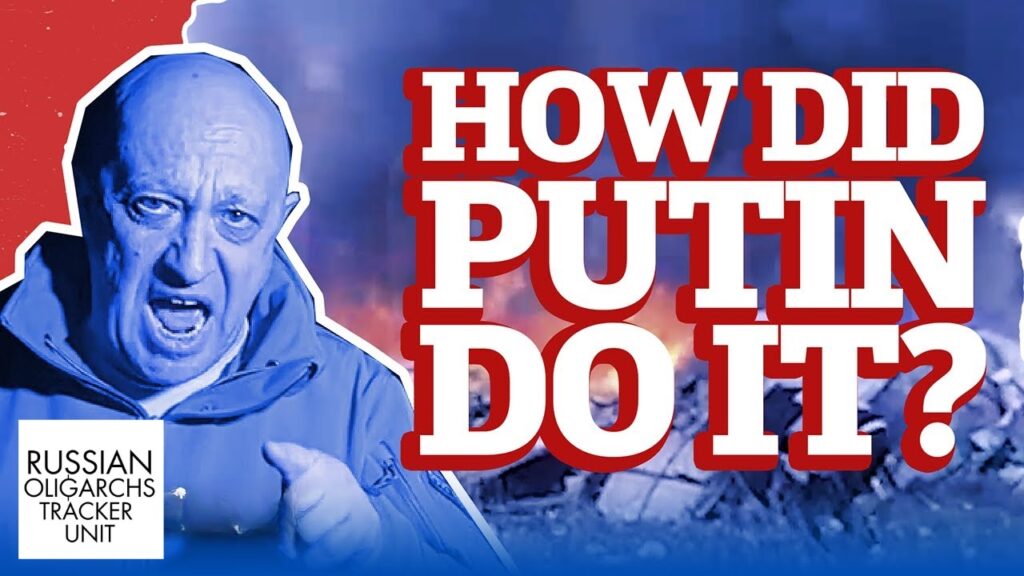
In mid-July, a video surfaced on Telegram channels that seemed to show Prigozhin welcoming fighters in Belarus. However, later that same month, he was photographed in St. Petersburg, Russia, during the Africa-Russia summit. Recently, Prigozhin released his first video statement since the unsuccessful rebellion in June, implying that he might be in Africa, though the BBC has not confirmed the exact location in the video.
Furthermore, after Grey Zone reported his death, Russia’s aviation agency released a confirmed list of those on board the crashed aircraft in the Tver region, just north of Moscow, and Prigozhin’s name was included on that list.
About the Russian Plane Crash Shock and Death of Chekalov
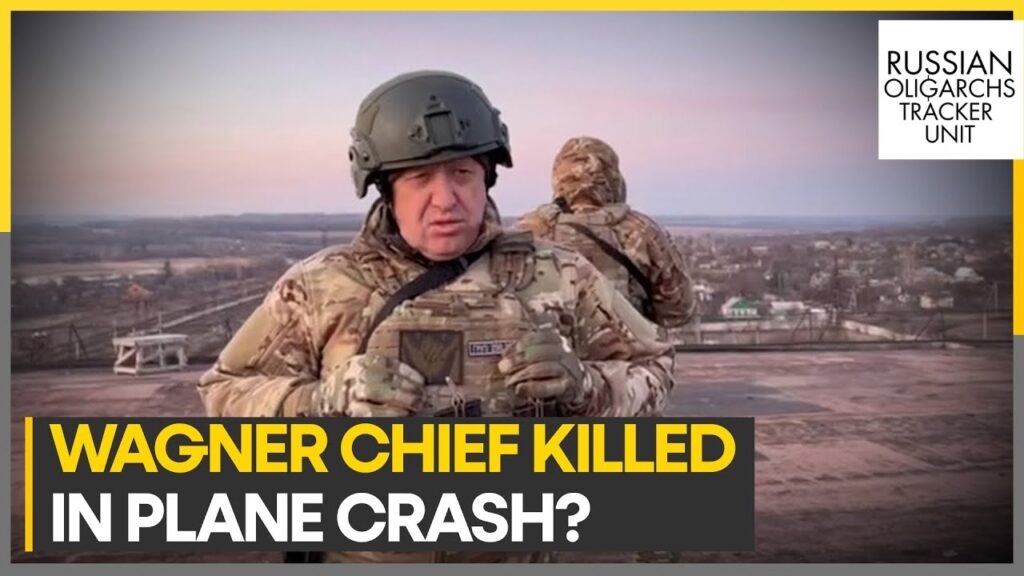
Chekalov lost his life in the Tver Oblast plane crash on August 23, 2023, along with Prigozhin and Dmitry Utkin. He was 47 years old at the time.
His funeral took place on August 29 at the Severnoye cemetery in St. Petersburg. The ceremony was attended by many of his loved ones, including individuals reported by Reuters to be associated with the Wagner private military company.
Funeral Details :
Russian Mercenaries Gather for Funeral of Prigozhin’s Deputy
On Tuesday, Russian mercenaries assembled for the funeral of a high-ranking deputy of Wagner Prigozhin, who tragically lost his life in a plane crash along with Prigozhin himself just a week prior. Notably absent from the proceedings was President Vladimir Putin, as the Kremlin stated that he had no intention of attending Prigozhin’s funeral.
The Farewell at Severnoye Cemetery
Valery Chekalov, the leader of Wagner logistics, was laid to rest at the Severnoye cemetery in St. Petersburg, Russia’s former imperial capital. Numerous people, including those who Reuters identified as Wagner mercenaries, attended Chekalov’s funeral along with his family. The ceremony saw a Russian Orthodox priest conduct prayers and swing a censer over Chekalov’s coffin. Family members, friends, and former colleagues paid their respects, some holding bouquets of flowers. Some mourners, including women and children wearing sunglasses, approached to kiss Chekalov’s coffin. Unidentified attendees at the funeral requested that a Reuters videographer and photographer cease filming.
The Mysterious Plane Crash

The tragic incident involved a private Embraer Legacy 600 jet carrying Prigozhin and others from Moscow to St. Petersburg. The plane crashed in the Tver region north of Moscow on August 23, resulting in the loss of all 10 people on board, including Chekalov, Dmitry Utkin (another high-ranking Wagner leader), and four individuals reported to be Prigozhin’s bodyguards. The cause of the crash remains unclear, although local villagers near the crash site reported hearing a loud noise before witnessing the aircraft plummeting to the ground.
Putin’s Non-Attendance and Condolences
When queried about President Putin’s possible attendance at Prigozhin’s funeral, Kremlin spokesperson Dmitry Peskov informed reporters that the president had no plans to attend. Peskov clarified that the Kremlin lacked specific information about the funeral arrangements, emphasising that such decisions were in the hands of the deceased’s relatives. The timing of Prigozhin’s own funeral remained undisclosed.
On the day following the crash, President Putin extended his condolences to the families of the deceased and acknowledged his long-standing acquaintance with Prigozhin, dating back to the tumultuous early 1990s. While acknowledging Prigozhin’s troubled history and significant mistakes, Putin also recognised him as a talented entrepreneur.
The Mutiny and Controversy
The plane crash occurred exactly two months after Prigozhin and his mercenaries staged a mutiny against top Russian military leaders. During this uprising, they briefly took control of the southern city of Rostov and advanced towards Moscow before ultimately retreating, stopping 125 miles from the capital. This mutiny posed a substantial challenge to Putin’s rule and marked a significant event in his tenure. The Kremlin vehemently denied allegations, labelled an “absolute lie,” that Putin ordered Prigozhin’s assassination in retaliation.
International Reactions
President Joe Biden expressed little surprise at Prigozhin’s death, insinuating that not much happens in Russia without Putin’s involvement. Investigators confirmed the identities of all 10 individuals killed in the crash through genetic testing, a group that included two pilots and a flight attendant.
Mysterious Deaths Among Russian Elites Amid Ukraine Conflict
Wagner Group Leader Yevgeny Prigozhin’s Recent Death Sparks Concern
Yevgeny Prigozhin’s Tragic Plane Crash:
Yevgeny Prigozhin, the leader of the Wagner Group, met a tragic end in a plane crash while traveling between Moscow and Saint Petersburg. His death came shortly after a mutiny by his mercenaries in June, which strained his relationship with President Putin.
Speculation Surrounding Prigozhin’s Death:
Many speculate that Prigozhin’s death might be a political assassination, signaling a warning to Russia’s elites ahead of the 2024 elections. Ukrainian presidential aide Mykhailo Podolyak shares this sentiment.
Putin’s Response:
President Putin offered condolences and acknowledged Prigozhin’s contribution to fighting in Ukraine. He described Prigozhin as a complex figure with both achievements and mistakes. Several Russian elites have died under mysterious circumstances in the past year, raising concerns and conspiracy theories.
Deaths in Early 2022:
The string of unusual deaths began in early 2022, just before Putin’s invasion of Ukraine. Notable figures like Leonid Shulman, Alexander Tyulakov, Igor Nosov, and Mikhail Watford were among those who passed away.
Bizarre Deaths:
Some deaths took on bizarre and perplexing forms, such as Vasily Melnikov’s family stabbing and Vladislav Avayev’s murder-suicide. Alexander Subbotin’s death, involving a shaman and Jamaican voodoo rituals, stood out as particularly unusual.
Continued Deaths:
The pattern of elite deaths persisted into late 2022, with Pavel Antonov’s fatal fall from a hotel window in India. Several of these individuals had voiced criticism of Putin’s actions in Ukraine.
Despite these puzzling incidents, there is no clear and definitive explanation for these deaths. Many have noted the connection between the outspokenness of these elites and their unfortunate fates.
The death of Yevgeny Prigozhin, along with the string of mysterious deaths among Russian elites, remains a topic of intrigue and speculation, leaving many questions unanswered about the circumstances surrounding these individuals’ demises.
Other mysterious Russian deaths or attacks surrounding Putin
Boris Nemtsov
In 2015, Boris Nemtsov, a prominent Russian opposition figure known for his strong criticism of the Putin administration, was fatally shot in an assault that took place on a bridge within sight of the Kremlin.
- He met his demise just a few days prior to his scheduled leadership of an uncommon public demonstration against Russia’s takeover of Ukraine’s Crimean area and its backing of separatist activities in eastern Ukraine’s Donbas region.
- The Kremlin disavowed any participation, while in 2017, a Russian court found five individuals guilty of Nemtsov’s murder in a trial that his family labeled as an attempt to conceal the truth.
- In the years that followed, it came to light that a government agent working with a group that carried out assassinations had been closely watching him in the months before his death.
Alexei Navalny
The leader of the opposition, Navalny, who is currently incarcerated for approximately three decades, was poisoned in August 2020 using a potent nerve agent known as Novichok, a product of Soviet Union’s research and development.
- The Kremlin claimed no responsibility, but later inquiries conducted by Bellingcat revealed that the individuals behind the assault were affiliated with Russia’s Federal Security Service (FSB) and that the decision to poison him had come from the highest levels of the Kremlin.
Alexander Litvinenko:
In 2006, Litvinenko, a former KGB agent turned whistleblower, passed away in the United Kingdom as a result of poisoning with a scarce and extremely radioactive substance known as polonium-210.
- Once more, Russia has refused any participation, yet both the United Kingdom and the European Court of Human Rights have reached the determination that Russia likely played a role. The UK investigation even went as far as suggesting that Putin “likely sanctioned” the assassination of Litvinenko.
- One of the indications suggesting the Kremlin’s participation is the observation that nearly all the global supply of polonium-210 originates from state-managed nuclear facilities in Russia, where nuclear authorities have emphasized strict oversight over access to this element.
Sergei Skripal:
In 2018, Skripal, a former Russian intelligence operative residing in the United Kingdom, along with his daughter, fell victim to an assault in Salisbury. They were targeted with a nerve agent that bore a resemblance to the substance employed in the attack against Navalny.
- Skripal and his daughter managed to survive, but a British citizen lost their life, and several others were harmed when they encountered a perfume container suspected to be linked to the incident.
- The United States, the United Kingdom, and several other countries have jointly determined that individuals affiliated with the Russian military intelligence agency were responsible for the poisonings. Furthermore, the United Kingdom has formally accused three members of this agency in connection with the incidents.
Yuri Shchekochikhin:
In July 2003, Russian investigative journalist and liberal lawmaker Shchekochikhin experienced a sudden illness and passed away. Doctors at a hospital associated with the Kremlin stated at the time that his cause of death was attributed to a severe allergic reaction.
- His family members have reported that Shchekochikhin endured a harrowing 12-day period characterized by excruciating pain, during which his skin progressively peeled off, his hair fell out, and his organs suffered successive failures.
- When they requested access to Shchekochikhin’s medical records, medical professionals informed his family that these documents were being held by prosecutors, citing them as a “medical secret.” This was in relation to an investigation that would not be initiated until several years later.
- In the years leading up to his demise, Shchekochikhin had published investigative reports exposing a smuggling operation, money laundering activities, and a corruption scandal involving high-ranking FSB (Federal Security Service) agents.
- Additionally, he had been delving into the potential involvement of the FSB in the 1999 Moscow apartment bombings, an event that played a part in triggering the Second Chechen War.
Anna Politkovskaya
In October 2006, Anna Politkovskaya, a Russian journalist and advocate for human rights, was fatally shot in her residence located in Moscow.
- She had documented human rights abuses during the Second Chechen War and authored a book in 2004, asserting that Putin, via the FSB, was suppressing civil liberties to steer the nation toward a Soviet-style dictatorship before she passed away.
- In 2014, a Moscow court convicted five men for her murder, but the identity of the individual who ordered her assassination was never determined.
Multiple Russian oligarchs and executives also died :
According to a report from The New York Times, a number of prominent Russian oligarchs and high-ranking executives have met untimely deaths in perplexing circumstances, including suicides and accidents, since the commencement of Russia’s invasion of Ukraine.
- Ravil Maganov, who held the position of Chairman of the Board at Lukoil, a prominent Russian conglomerate, experienced a tragic and unexpected demise in September 2022. This unfortunate incident occurred when he fell from a hospital window in Moscow. The circumstances surrounding his death garnered significant attention and controversy in Russia and beyond.
- Russian media initially reported that Ravil Maganov had taken his own life, implying that it was a case of suicide. However, in response to these reports, Lukoil released an official statement following his passing. According to the company’s statement, Maganov did not succumb to suicide but rather passed away as a result of a severe illness.
The sudden and perplexing nature of Maganov’s death, along with the contrasting narratives presented by the media and Lukoil, added an extra layer of complexity to this tragic event. It raised questions and speculation within both the business community and the public, leaving many seeking further information and clarity about the circumstances surrounding the loss of a key figure in one of Russia’s largest private corporations.




